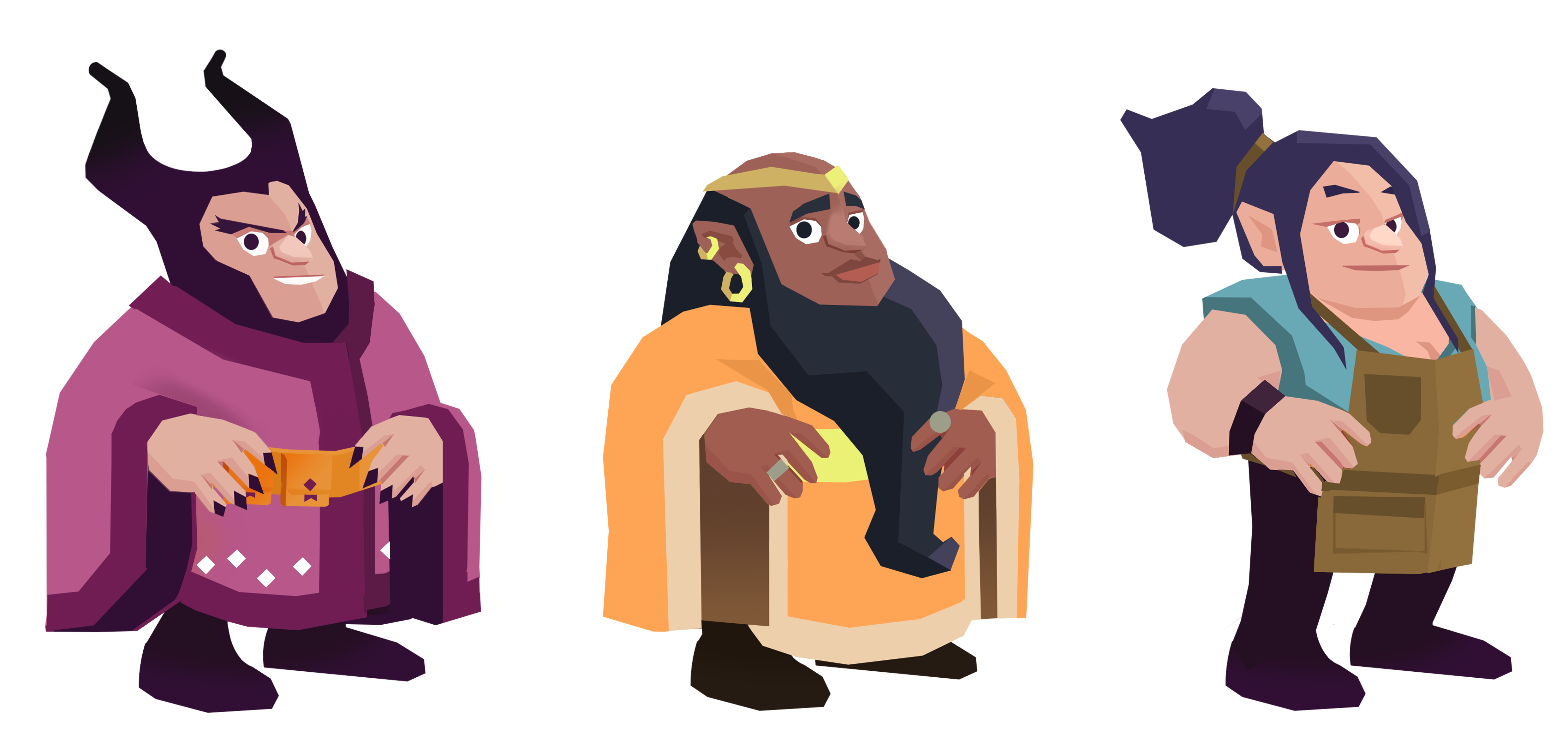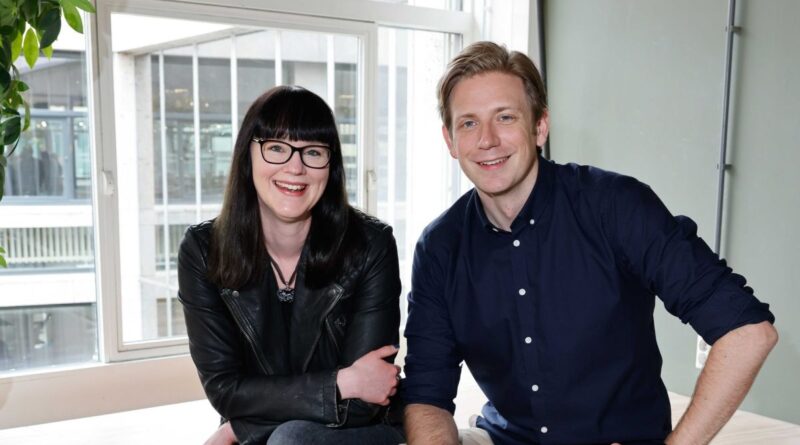Backed by Google’s Gradient, Versed wants to help storytellers create video games using generative AI
Generative AI has undoubtedly been the big buzzword of the past year, driven in large part by Microsoft-backed OpenAI and ChatGPT. But while the ability to create all manner of fresh content from a simple prompt raises various societal and ethical questions, it also opens the door to myriad businesses that simply would not have been possible just 12 months ago.
Venture Capitalists (VCs) have been pouring bucketloads of cash into generative AI startups, with some investors launching dedicated funds specifically for it — just this week, Salesforce Ventures revealed it was upping its generative AI investment fund, announced in March, from $250 million to $500 million.
It’s against this backdrop that fledgling European startup Versed is looking to make its mark by allowing anyone to create their own role-playing game (RPG) simply by writing text-based stories and instructions. Versed claims that its AI interprets the narrative and assigns characters and locations from an in-house database to create immersive worlds.
Founded out of the Netherlands just four months ago, Versed is the handiwork of CTO and former Unity developer Cat Burton, and CEO Robert Gaal, a former Googler and entrepreneur with several startups to his name. In the intervening months, Versed has grown its remote-first team to seven people spread across the U.K., Denmark, Bulgaria, and the U.S. Now, in preparation for scaling the business from early-alpha to a full-fledged commercial product next year, the company today revealed that it has raised €1.6 ($1.7 million) in a pre-seed round of funding led by Google’s Gradient Ventures.
The generation game
Generative AI is already making inroads into the gaming sphere. Developers have shown how they can generate original visual assets, with the likes of San Francisco-based Scenario recently raising $6 million in seed funding to do just that. Gaming giant Roblox also announced new tools to let game developer generate entire virtual worlds through natural language prompts, while Microsoft is working on similar generative AI smarts for its hugely popular Minecraft franchise.
While Versed certainly runs tangential to these efforts, its attempt to let creators generate an entire RPG through story alone — zero coding — could take things to the next level.
“I would say that most of our competitors are more on the developer side, and that is not who we’re focused on,” Gaal told TechCrunch. “We’re not focused on engineering, or anything like that. We are building a way to make your own role playing video game, just by writing a story. We use that story to then generate fully 3D immersive worlds, with turn-based combat and branching dialogue, and everything that makes a role playing game great.”
To do this, the writer might describe the characters and their location, including specifics such as costumes they’re wearing or what era (e.g. medieval) a scene is taking place, and Versed matches the description with visuals that were created by its own in-house artists.
Sample Versed characters Image Credits: Versed
Under the hood, Versed uses a combination of LLMs and its own algorithms to match assets and build worlds. The role of the LLM here is to summarize the creator’s descriptions of the game’s content, after which it uses procedural generation — a method whereby computers create data — to build all the locations and match with assets in its internal library.
While Versed is currently using OpenAI’s GPT-4, Burton says that they have engineered their platform so that they can easily switch to a different LLM should a more suitable language model arrive on the scene.
“Because it keeps evolving so quickly, every week there seems to be a new LLM or a different advancement that comes out, we’ve decoupled it so we can switch it to any different LLM as they progress,” Burton explained.
For gameplay, Versed leans on the Unity game engine, which will allow games to be played on just about any platform, though initially gameplay will be limited to Mac and PC.
Immersive
There are some similarities here to what something like Twine has been doing for the past decade or so, with a focus on helping creators generate text-based interactive fiction on the web. “We basically go that extra step and make it fully immersive in 3D,” Burton said.
Ultimately, Versed is striving to remove all the technical and design knowhow from game development, hiding the game engine in the background to allow storytellers to focus on what they know best.
“There’s always that huge barrier to entry to those [game engines] if you want to build a game — you’ve got to know code, you’ve got to know art, you’ve got to know audio, marketing, editing all of that,” Burton said. “So we basically bridge that whole gap for people. So they can write a story like they would do in something like Twine, but what they get is a fully immersive 3D game.”

Sample Versed characters Image Credits: Versed
After TechCrunch viewed an early demo of a game created through Versed, it’s clear that there is potential for something truly revolutionary in terms of democratizing game development. But “generative AI” is surely all about allowing the user (i.e. the storyteller) to “generate” their own in-game assets, rather than relying on a library of characters and scenes created in-house at Versed? For now, that isn’t possible, but it is the ultimate end-goal. Burton says that they first need to create all their own assets, from which they can train their own text-to-3D models.
“We want to start by building the assets manually, because then when we train 3D, it’ll be trained using our own assets, our own art style, and we won’t be stealing somebody else’s IP (intellectual property),” Burton explained.
This is important for a number of reasons, beyond building its own brand and ensuring that it’s not encroaching upon someone else’s work. Indeed, it’s simply not possible to build a big enough library of assets by hand that will cover every requirement, which is why we’re seeing the likes of stock photo giant Shutterstock embrace generative AI too.
So while Versed plans to continue developing its own art, it will augment this with generative AI.
“In the long run, we want to generate the assets that are missing,” Burton continued. “We’re always going to keep our art team, that’s very important to us. But if someone writes a story, and they want a three-headed dragon wearing a top hat, the likelihood is we won’t have that in our database. So we’ll hopefully try and create that for them.”

3-headed dragon wearing a top-hat Image Credits: Microsoft’s DALL-E-powered Image Creator
Target market
At its core, Versed is targeting creators that are already active in the worlds of interactive storytelling, those who are perhap slooking to transition from offline to digital.
“We’re choosing role playing games first, because this is a very well established format to tell a story,” Gaal said. “A lot of our creators that we’re working with right now, a large part of them are gamemasters, they live stream on Twitch where they sell their own board games or their their own adventure novels that you can use in your board game. So this made a lot of sense, because they were already used to writing for interactive storytelling — they’ve just never done it in a digital format.”
The big elephant in the room here is the issue of business model — how, exactly, does Versed plan to make money? While the specifics are still being ironed out, Gaal said that they will likely pursue a subscription-based model where gamers subscribe to individual creators or types of adventures, with Versed taking a cut.
“Our goal is to ensure that this is a platform where our creators can make a living,” Gaal said. “We’re focused on making sure that creators can keep shipping every single week, or every single month, a new adventure for you to play. So it’s episodical, and it’s highly tailored to how creators currently work with their fanbase, which could be a weekly podcast or a monthly newsletter. So we’re trying to remain in line with that.”
For now, Versed is working with 10 creators as part of an early alpha program, with plans to introduce the first roster of games by around October time when it will launch its private beta at New York’s Comic Con. A full public launch is currently slated for the second half of 2024.
In addition to lead backer Gradient Ventures, Versed’s pre-seed round included participation from Berlin-based investor Cherry Ventures, and angels hailing from companies including Unity, Twitch, Remote, and Framer.
Backed by Google’s Gradient, Versed wants to help storytellers create video games using generative AI by Paul Sawers originally published on TechCrunch





